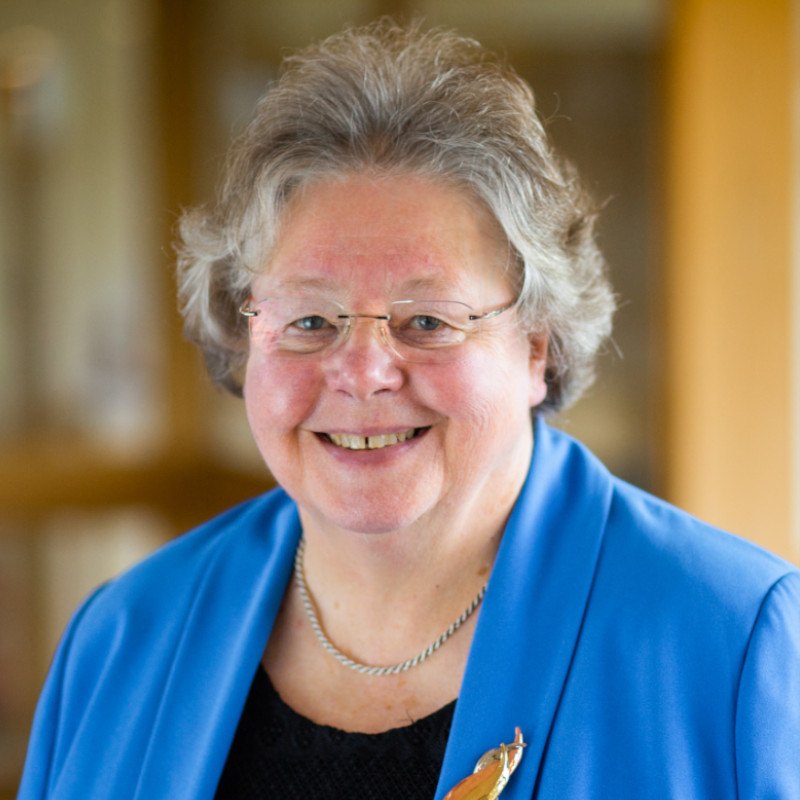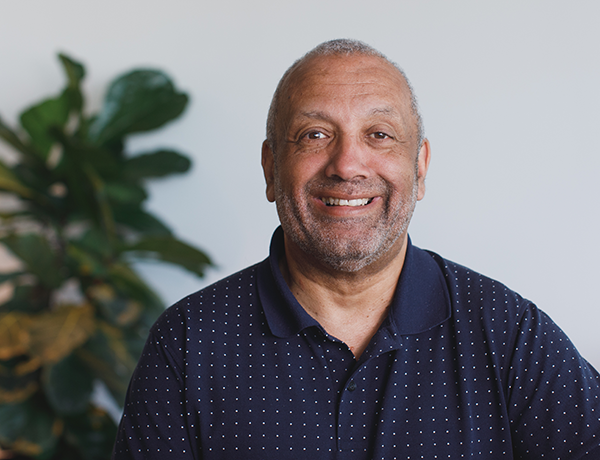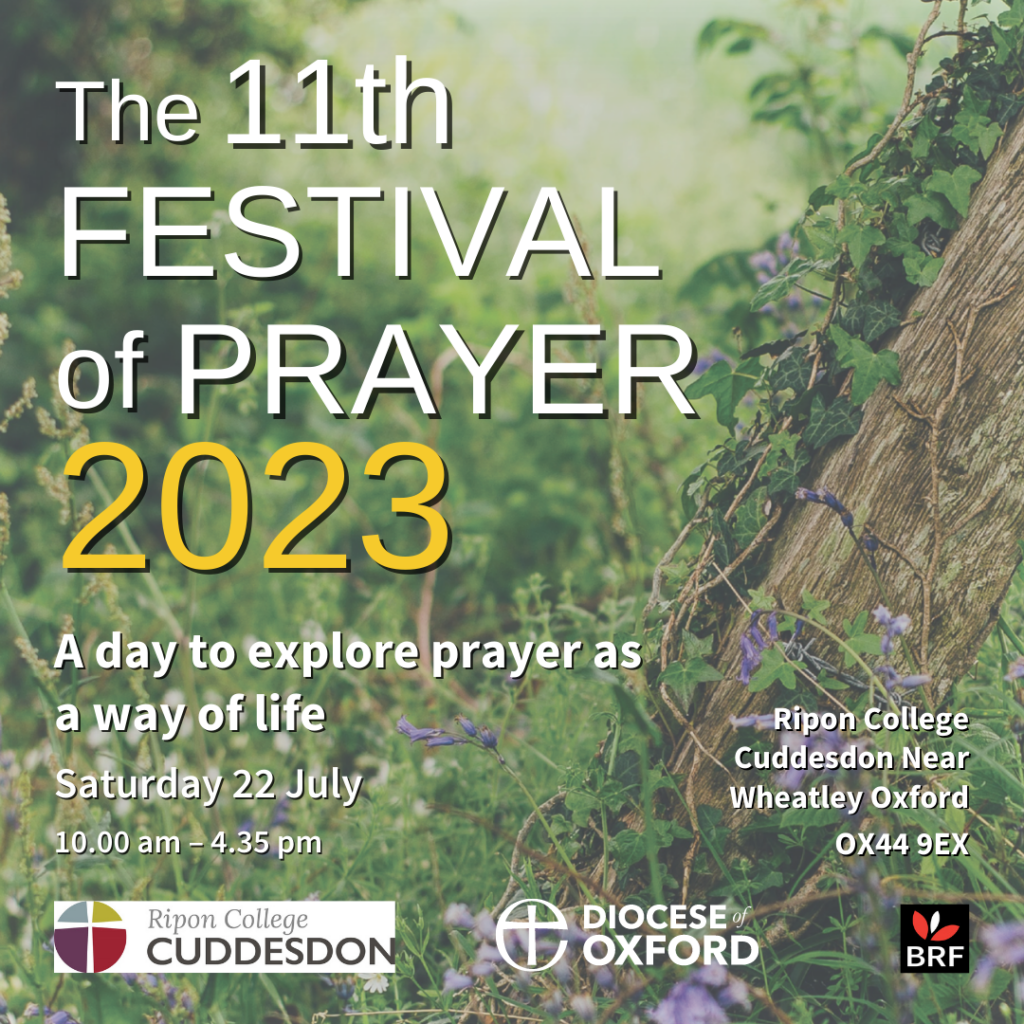As we look to Ascension Day on Thursday, followed by Pentecost ten days later, Christina Baxter, former vice chair of BRF trustees, closes our series on lifelong learning with a reflection on the crucial role of the Holy Spirit.
14 May 2023
Come, Holy Spirit
Learning happens in a myriad of ways, one of which is by watching. An apprentice working with builders at my home seemingly ‘wastes’ lots of time waiting to be useful to the person with whom he is working. But actually he is learning all the time by watching the experienced tradesman lay bricks or dig foundations. And weekly he attends college, where he learns the theory of his trade, and may even ‘practice’, in a classroom setting or on site, some of its complexities.
But as well as the watching, with the theory and practice there are also the attitudes which are needed to take a person through decades of hard physical work from school to retirement. And those attitudes are more ‘caught’ than ‘taught’, since they require a major shift in ways of living – ‘hardening up’, his father calls it, so the apprentice comes to live and breathe buildings.
‘An apprentice seemingly wastes lots of time waiting to be useful, but actually he is learning all the time by watching.’
This invasion of my garden has been fascinating for me, partly because my father was a bricklayer and partly because, as a lifetime educator myself and therefore a lifetime learner myself, many of my interests have come together this year.
Ascension to Pentecost
In the Christian year, we have come to the point in the Easter story where the disciples are about to make a major leap forward in their learning. The risen Jesus has been appearing to them and helping them to learn the theory which underpins his cruel crucifixion and momentous resurrection:
And beginning with Moses and all the Prophets, he explained to them what was said in all the Scriptures concerning himself.
Luke 24:27 (NIV)
The time for watching the master and learning from his example, which is set out in the early parts of the gospels, has now passed. As too have the practice journeys, when the disciples set out in pairs to follow his guidance (Luke 10:1–11). Much theoretical learning has happened as they listened to Jesus preach and teach (e.g. the sermon on the mount, Matthew 5—7). And for most, their hearts have been touched and their attitudes have changed, though not the attitude of Judas Iscariot, who was willing to sell the secret location of Jesus for 30 pieces of silver.
Essential for life
Learning is essential for life, and any young people or others who are incapable of learning live dangerous lives, subject to those who can exploit or neglect them. Though at some points people may cease to learn in a formal setting, through their own decision, through paucity of resources or through social norms which suggest that there is no need for them to learn any more, for most people, informal learning continues throughout life. But as with all learning, while there are slight steps forward all the time, there are occasions when there are major breakthroughs.
For the disciples, both the cross and the resurrection have been major breakthroughs, where accustomed patterns of understanding have had to be abandoned in order to take account of radically new events which challenge all that has been presupposed hitherto. Hence Jesus’ comment, ‘Oh, how foolish you are, and how slow of heart to believe all that the prophets have declared!’ (Luke 24:25).
‘With all learning, while there are slight steps forward all the time, there are occasions when there are major breakthroughs.’
Each event, but more especially the two together, have precipitated the disciples into a serious reassessment of what they thought they knew. Then, as they begin to see things in a new way, two other radical events plunge them into further reflection – their last sight of Jesus as he left them (Acts 1:6–11) and the coming of the Holy Spirit at Pentecost, which shakes them to the core (Acts 2:1–4).
Then they gathered around him and asked him, ‘Lord, are you at this time going to restore the kingdom to Israel?’ He said to them: ‘It is not for you to know the times or dates the Father has set by his own authority. But you will receive power when the Holy Spirit comes on you; and you will be my witnesses in Jerusalem, and in all Judea and Samaria, and to the ends of the earth.’ After he said this, he was taken up before their very eyes, and a cloud hid him from their sight.
Acts 1:6–9
Many consequences follow from ‘this promise of the Father’ being fulfilled (Acts 1:4).
The ‘remembrancer’
Significant for lifelong learning is the Spirit’s determination to be the ‘remembrancer’ for the disciples: ‘The Advocate, the Holy Spirit, whom the Father will send in my name, will teach you everything, and remind you of all that I have said to you’ (John 14.26). Most importantly in the days following the ascension, the disciples need to remember what they have learned from Jesus – for there are in those early days no written records to be consulted, only the memories of the eyewitnesses.
Equally important as the actual words were the emphases of Jesus – the themes he touched on frequently, the stories he told; his tone and nuances; and the way he relied on the Hebrew scriptures and wove them into his teaching, reframing them in his big picture of the kingdom of God: ‘You have heard that it was said… but I say to you…’ (Matthew 5:27–28).
‘Most importantly in the days following the ascension, the disciples need to remember what they have learned from Jesus.’
It was vital to remember the need to repent, to receive forgiveness, to be ready to forgive others, and many other crucial matters. But their learning needed to be not only remembering the past but also finding ways to live in his new way, and for that their creativity would be needed as they encountered new situations, new cultures, new challenges. In every circumstance they needed to discover what being faithful to Jesus meant for them, and the book of Acts records occasions when that was being explored (e.g. the Council of Jerusalem in Acts 15).
That is why the Holy Spirit continues to teach the disciples, according to the promise of Jesus in John 14:16. His teaching is not outside in, but inside out – by which I mean that he can illuminate our minds so that we can see things in the light of God; he can touch our hearts so our attitudes to people and issues are reformed through repentance and renewal; he gifts and equips us so we can engage in practical ministry effectively.
‘Their learning needed to be not only remembering the past but also finding ways to live in his new way.’
From uncertain apprentice to mature disciple
So the days between Ascension and Pentecost are rightly spent praying for a renewed gift of the Holy Spirit, so we can be the lifelong learners, or the disciples, that Jesus intends us to be. That way we can be transformed from uncertain apprentices in the kingdom of God into the mature disciples who can bring forth treasures both old and new (Matthew 13:52).
Thus we will be people who understand the theory (have studied the Scriptures), whose hearts are set on fire with love for God and our neighbours, and who can live effectively as Christian missioners and ministers. The Holy Spirit for whom we long is the divine accompanier who enables this lifelong learning, and assists at every step of the way.

Christina has been vice-chair of BRF’s trustees for the past 10 years, in which time she has enjoyed learning a great deal about BRF. Before that she taught theology for over 30 years and was latterly principal of a college training clergy, laity and youth workers. She continues to be involved in local church life, where she preaches and makes marmalade to sell at coffee mornings.

New vice president for BRF
We are delighted to announce that Professor John Swinton has accepted our invitation to become a vice president of BRF. This is an honorary role for an initial period of three years. Professor Swinton is professor in practical theology and pastoral care at the University of Aberdeen. He is a leading practitioner in the field of spiritual care for older people in the UK and has been instrumental in the development of the ground-breaking Spiritual Care Series course which BRF promotes and distributes through its Anna Chaplaincy ministry.

The May issue of BRF News will be landing on doormats this week, but you can read a digital copy now.

We are delighted that BRF author David Runcorn is the keynote speaker for our 11th Festival of Prayer, organised in collaboration with the Diocese of Oxford.
In addition to David’s opening keynote talk, delegates have a choice of attending three further workshops, enjoying the peaceful college grounds and exploring the labyrinth. There are over 20 to choose from, ranging from creative prayer ideas with Martyn Payne to the poetry and prayer of R.S. Thomas with Sarah Brush. This year’s programme also includes Celtic prayer, Carmelite spirituality, the English spiritual tradition and experiencing God in nature.
